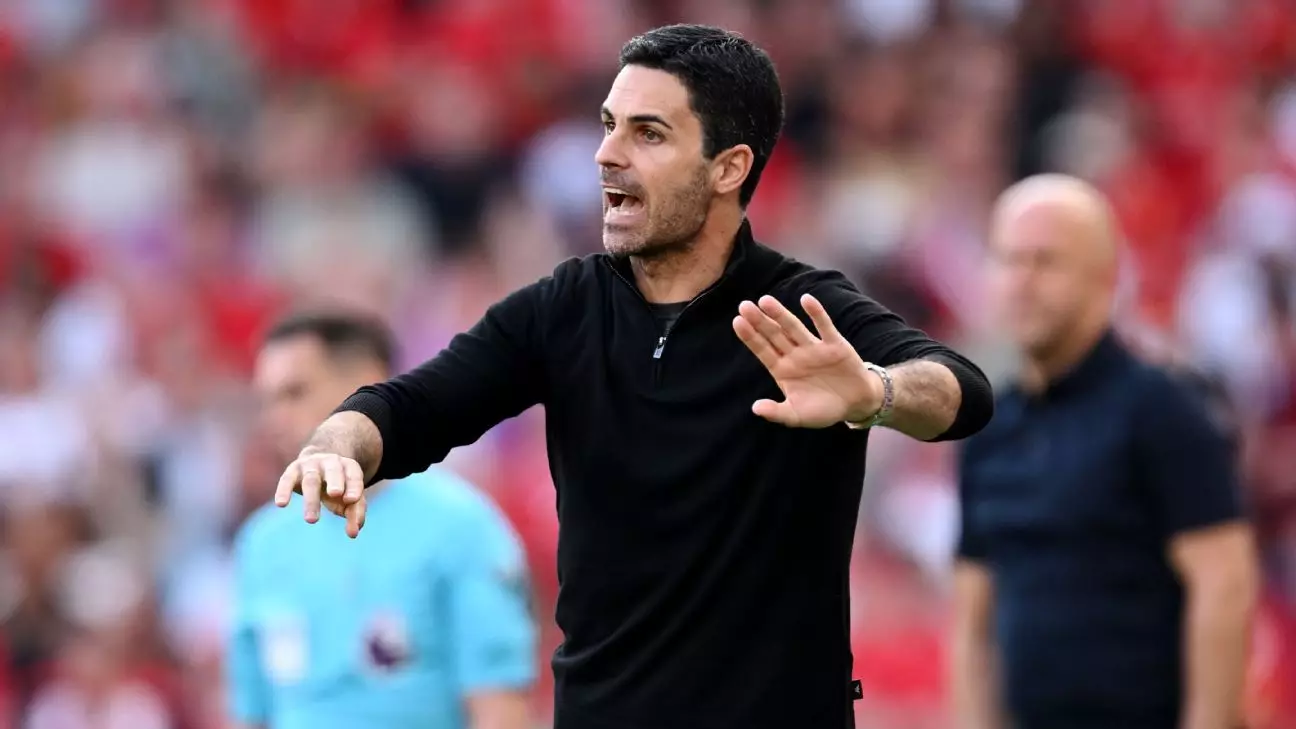In the ruthless arena of top-flight football, there lies a stark contrast between potential and performance. This divergence was recently highlighted in Arsenal’s match against Liverpool, where manager Mikel Arteta candidly deemed his team’s first-half display as “unacceptable.” For fans and analysts alike, this frank appraisal speaks volumes about the expectations of a club striving for greatness. Coming into this match, Arsenal was not only reeling from a painful Champions League exit against Paris Saint-Germain but also grappling with the psychological toll such setbacks impose on a squad.
The Gunners found themselves 2-0 down at Anfield after a blistering first half from Liverpool, punctuated by goals from Cody Gakpo and Luis Díaz. This performance illuminated a nagging fragility within Arsenal’s setup, one that was painfully apparent when facing a team of Liverpool’s caliber. While their resilience shone through in the second half, featuring impressive efforts from Gabriel Martinelli and Mikel Merino, the fundamentality of the issues Arteta highlighted should not be overlooked. The recovery from conceding early goals is commendable, but it raises a critical question: why does Arsenal consistently struggle in high-pressure moments?
Arteta’s Accountability: A Leader’s Burden
Arteta’s insistence on collective responsibility underscores an owner’s weight—the burden of expectation not just on players but on coaching staff as well. When he stated, “When the team plays like this, that’s on me,” it demonstrated a growth mindset that many aspiring managers should emulate. Here lies the crux of Arsenal’s challenges; Arteta recognizes that successful management transcends mere tactics—it’s about creating a mentally resilient team capable of withstanding the vicissitudes of elite football.
However, this admission also indicates a concern. If the coaching staff is consistently addressing performance issues in press conferences, how deeply entrenched are these problems within daily training? Arteta’s fierce commitment to maintaining high standards and improving player mentality is admirable. Still, it raises alarm bells about the extent to which this squad has found a reliable rhythm against formidable opponents.
The Road Ahead: Navigating High-Stakes Matches
With crucial fixtures against Newcastle United and relegated Southampton looming, the stakes could not be higher. Achieving Champions League qualification is not simply a goal—it’s an expectation for a club of Arsenal’s stature. The impending matches serve as a litmus test; they will reveal whether this team can harness its potential to deliver in decisive situations. The double-edged nature of the upcoming games lies not only in the tactical battle but also in whether the players can rebound from adversity with tenacity.
Arteta faces the monumental task of rallying a squad that, while exhibiting flashes of brilliance, has been marred by inconsistency. Six instances of playing with ten men this season illustrate a lack of discipline and mental fortitude—both are critical components in mounting a title challenge. As the Gunners prepare for what could be a make-or-break finish to their campaign, the question remains: Will they seize the moment and cement their place among Europe’s elite, or will they allow their self-doubt to overshadow their undeniable talent?
Right now, Arsenal stands at a crossroads, teetering between ambition and unfulfilled potential, waiting for a decisive push towards securing their future.

